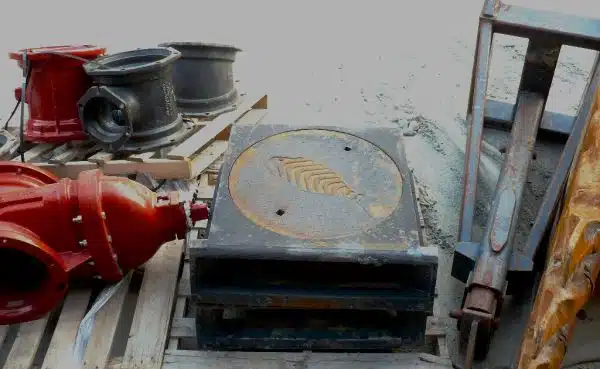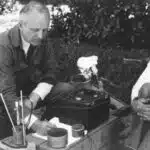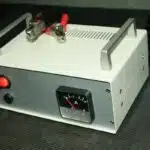As a motor oil recycling and disposal expert, it is my duty to educate individuals on the importance of properly managing their used motor oil. The improper disposal of motor oil can lead to environmental pollution, which in turn affects human and animal health. Therefore, it is crucial to understand the difference between recycling and disposing of motor oil.
Recycling used motor oil involves filtering out any impurities and contaminants before reusing it for various purposes, such as lubricating machinery or generating energy. On the other hand, disposing of used motor oil involves sending it to a landfill or incinerator, which can have adverse effects on the environment. In this article, we will delve into the various ways in which individuals can recycle or dispose of their used motor oil while minimizing their impact on the environment. By doing so, we can serve our communities by preserving our planet’s natural resources for future generations.
Understanding The Importance Of Proper Motor Oil Management
As a motor oil recycling and disposal expert, I am often asked about the importance of proper motor oil management. It’s like taking care of your own health – if you don’t do it properly, the consequences can be dire. In the same way, improper disposal of motor oil can have severe impacts on the environment and public health.
One key reason for proper motor oil management is the economic benefits of recycling. Used motor oil can be refined and reused, reducing our dependence on foreign oil imports and saving valuable resources. Additionally, recycling used motor oil creates jobs in local communities and supports local economies. Public awareness campaigns on proper motor oil disposal are crucial to ensure that people understand these benefits and take steps to properly dispose of their used motor oil.
However, despite these benefits, many people still dispose of their used motor oil improperly. This is why public awareness campaigns are so important. By educating people about the economic benefits of recycling their used motor oil, we can encourage them to take action and properly dispose of it. In addition to protecting our economy, this will also help protect our environment and public health from the negative impacts of improper disposal. In the next section, we’ll explore these impacts in more detail.
The Environmental Impact Of Improper Disposal
- Improper disposal of motor oil can cause significant contamination of groundwater, soil, and air.
- Groundwater contamination can occur when motor oil is disposed of on land or into surface water, resulting in serious environmental implications.
- Soil contamination can occur when motor oil is spilled or improperly stored, leading to a decrease in soil fertility and an increase in the risk of soil erosion.
- Inhalation of air contaminated with motor oil can lead to health hazards due to the presence of volatile organic compounds and other hazardous substances.
- Proper disposal of motor oil can reduce the risk of contamination and help protect the environment.
- It is recommended to recycle or dispose of motor oil at an authorized facility for proper treatment and disposal.
Groundwater Contamination
Groundwater contamination is one of the most significant environmental impacts of improper disposal of motor oil. Groundwater is a vital resource that provides drinking water to millions of people and supports aquatic ecosystems. The presence of oil contaminants in groundwater can cause serious health problems, especially if the contaminated water is used for drinking or irrigation purposes.
Preventing groundwater contamination requires responsible disposal practices for used motor oil. Motor oil should never be dumped down the drain or onto the ground. In addition, it’s important to use designated collection centers or recycling facilities to dispose of used motor oil properly. By doing so, we can reduce the risk of groundwater contamination and preserve this valuable natural resource.
Remediation methods are available for addressing contaminated groundwater caused by improper disposal practices. However, these methods can be expensive and time-consuming, making prevention the best approach. It’s crucial that we take proactive measures to prevent groundwater contamination by properly disposing of used motor oil. Through education and awareness efforts, we can encourage individuals and businesses to adopt responsible practices that protect our environment and public health.
Soil Contamination
Preventing soil contamination is another critical aspect of responsible motor oil disposal. Soil contamination occurs when used motor oil is dumped onto the ground or buried improperly, which can lead to long-term environmental hazards. Motor oil contains harmful chemicals that can seep into the soil and contaminate nearby water sources and wildlife habitats. Therefore, it’s crucial to adopt proper disposal practices to prevent soil contamination.
To prevent soil contamination caused by improper motor oil disposal, individuals and businesses should use designated collection centers or recycling facilities. These facilities are equipped with the necessary equipment to store, transport, and dispose of used motor oil safely. Moreover, they ensure that the oil is recycled or disposed of properly without harming the environment.
In conclusion, preventing soil contamination caused by improper motor oil disposal is essential for protecting our environment and public health. By using designated collection centers or recycling facilities, we can help reduce the risk of environmental hazards associated with soil contamination. As responsible citizens, it’s our duty to adopt proper disposal practices and contribute towards preserving our planet for future generations.
Air Pollution
Transitioning to the next subtopic, air pollution caused by improper motor oil disposal is a significant concern that needs attention. The impact of motor oil fumes on the environment can lead to various health hazards and contribute to climate change. Motor oil contains harmful chemicals that emit toxic fumes when burned or evaporated, leading to air pollution. Therefore, it’s crucial to adopt proper disposal practices to reduce air pollution caused by motor oil.
There are several ways to reduce air pollution caused by motor oil. One effective method is to recycle used motor oil properly. Recycling helps prevent the emission of toxic fumes into the atmosphere and reduces the need for new oil production, which contributes to greenhouse gas emissions. Additionally, using high-quality motor oils with low volatility can also help reduce air pollution caused by evaporation.
Furthermore, individuals and businesses should dispose of used motor oil at designated collection centers or recycling facilities instead of burning it or dumping it into sewers or waterways. These facilities ensure that the used oil is collected safely without causing environmental damage and disposed of in an environmentally friendly way. By adopting proper disposal practices and reducing air pollution caused by motor oil, we can protect our environment and public health while contributing towards a sustainable future for all.
The Benefits Of Recycling Used Motor Oil
Improper disposal of motor oil can have a significant impact on the environment. When oil is not disposed of properly, it can contaminate soil and water sources, leading to harm for both humans and wildlife. Additionally, improper disposal of motor oil can lead to fines and legal consequences for individuals or businesses.
To avoid these negative impacts, recycling used motor oil is a beneficial option. Not only does recycling help protect the environment, but it also has cost-effective benefits. Recycling used motor oil reduces the need for new crude oil production, which can be an expensive process. It also helps reduce the amount of waste being sent to landfills.
By choosing to recycle used motor oil, individuals and businesses can reap several benefits:
- Reduced dependence on foreign oil sources
- Creation of jobs in the recycling industry
- Energy conservation through reduced energy consumption in producing new crude oil
- Cost savings compared to purchasing new crude oil
- Reduction in environmental pollution
Overall, recycling used motor oil provides numerous benefits that make it a worthwhile option for both individuals and businesses. By reducing environmental pollution and conserving energy, recycling helps create a more sustainable future while also providing cost-effective solutions for those seeking them.
Transition into subsequent section: Understanding the process of recycling used motor oil is key to fully understanding its benefits.
The Process Of Recycling Motor Oil
Motor oil can be recycled, which is a process that involves the collection and filtration of the used oil. The collection system for used motor oil varies from place to place. In some areas, individuals may take their used oil to a collection center or drop-off location. In other areas, curbside pickup may be available.
Once collected, the used motor oil undergoes filtration to remove impurities and contaminants. The filtration process involves passing the used oil through a series of filters that remove any dirt, metal particles, or other debris that may have accumulated in the oil during use. Once filtered, the resulting product can be re-refined into lubricating oils or even used as fuel.
The benefits of recycling motor oil are significant. Recycling saves energy and reduces greenhouse gas emissions compared to producing new lubricants from crude oil. Additionally, recycling helps reduce the amount of waste sent to landfills and provides a sustainable solution for managing used motor oil. With proper collection and filtration processes in place, recycling motor oil can benefit both individuals and the environment as a whole.
Filtering Out Impurities And Contaminants
The filtering process for motor oil involves using specialized filters to remove any contaminants and impurities from the oil. Depending on the type of filter used, different levels of filtration can be achieved, with some filters capable of removing particles as small as 5 micrometers. The use of filters can be highly effective at removing contaminants and impurities from motor oil, making it suitable for reuse. Disposal of used motor oil should be done according to local regulations, as some jurisdictions may have restrictions on where and how it can be disposed of.
Filtering Process
It is a sad reality that many people still dispose of their used motor oil carelessly, without understanding the environmental impact it has. As an expert in motor oil recycling and disposal, I empathize with the need for proper waste management. One crucial aspect of this process is filtering out impurities and contaminants from used motor oil before recycling or disposal.
Filtering efficiency is key when it comes to removing impurities from used motor oil. It’s important to ensure that all contaminants are removed thoroughly. A higher filtration efficiency will result in cleaner, more refined oil that can be reused or disposed of safely. There are various methods for achieving high filtering efficiency, including centrifugal filters and sedimentation tanks.
DIY filtering methods are common among those who want to recycle their own motor oil. However, these methods may not always provide the best results. It’s important to remember that filtering out impurities requires specialized equipment and knowledge of the different types of contaminants that can be found in used motor oils. Consulting with a professional service provider ensures that you’re using the most effective method for your specific needs and requirements.
In conclusion, proper waste management requires careful consideration of all aspects involved in disposing or recycling used motor oils. The filtering process is one of the most important steps in this process, as it ensures that any impurities and contaminants are removed effectively. By working with experts in this field and investing in high-quality filtration systems, we can help protect our environment while also ensuring safe disposal practices for ourselves and future generations to come.
Types Of Filters
Filter maintenance is crucial in ensuring optimal performance of filtration systems used in motor oil recycling and disposal. Regular cleaning and replacement of filters can ensure that impurities and contaminants are effectively removed from the used motor oil. Choosing high-quality filters that are designed for the specific type of motor oil being processed can also improve filtration efficiency.
There are various types of filters used in the motor oil recycling and disposal industry. Some common ones include cartridge filters, bag filters, and centrifugal filters. Cartridge filters are generally effective at removing fine particles and sediment from the used motor oil, while bag filters often have a higher dirt-holding capacity. Centrifugal filters use centrifugal force to separate impurities from the motor oil, making them ideal for removing heavier contaminants such as metal shavings.
When choosing filters for a filtration system, it’s important to consider several factors such as flow rate, pressure drop, and filtration efficiency. Working with a professional service provider can help ensure that the right type of filter is chosen based on your specific needs and requirements. Proper filter maintenance coupled with appropriate filter selection can make a significant difference in reducing environmental impact while also extending the lifespan of equipment used in motor oil recycling and disposal processes.
Reusing Recycled Motor Oil For Various Purposes
As we have seen in the previous section, filtering out impurities and contaminants from used motor oil is a crucial step in the recycling process. However, it is equally important to understand the uses of recycled oil and how you can recycle it yourself. Recycling used motor oil not only benefits the environment but also helps in conserving natural resources.
One of the primary uses of recycled motor oil is its conversion into fuel for industrial burners or boilers. This process provides an alternative to fossil fuels and reduces greenhouse gas emissions. Additionally, recycled oil can be used as a lubricant for various machinery and equipment. It can also be re-refined into high-quality base oils, which are further blended with additives to produce new lubricants.
If you are interested in DIY recycling tips, there are several ways to recycle used motor oil at home. One method is to use a drip pan or other container to collect the oil while changing your vehicle’s oil filter. Once collected, you can take it to a local collection center that accepts used motor oil for recycling. Another way is to use a commercial oil recycling kit that includes a filter and funnel designed specifically for collecting and recycling used motor oil.
Recycling used motor oil has numerous benefits, including reducing pollution and conserving natural resources. On the other hand, disposing of used motor oil improperly has severe adverse effects on human health and the environment. In the subsequent section, we will discuss these effects in detail and explore sustainable solutions for managing used motor oil waste.
The Adverse Effects Of Disposing Of Used Motor Oil
The improper disposal of used motor oil can have serious consequences on the environment, including contamination of soil and water. If used motor oil is disposed of improperly, pollutants can seep into the ground and eventually make their way into water supplies, leading to contaminated drinking water and aquatic ecosystems. To minimize the risk of contamination, used motor oil should be recycled or disposed of through a certified waste collection or disposal site. Professional recycling services can properly manage and process used motor oil to ensure that it does not cause environmental damage.
Contamination Of Soil
The contamination of soil due to improper disposal of used motor oil is a serious issue that should not be taken lightly. It can have detrimental effects on the environment, wildlife and human health. The impact of contaminated soil can last for years and can be very difficult to remediate. Prevention measures should be implemented to ensure that used motor oil does not end up in landfills or other areas where it may contaminate the soil.
Legal consequences also exist for those who do not dispose of their used motor oil properly. Fines and penalties can be imposed on individuals or businesses that violate regulations regarding the disposal of hazardous waste, including used motor oil. Public awareness campaigns have been launched to educate people about the importance of proper disposal methods and the potential harm caused by irresponsible actions.
It is crucial that everyone takes responsibility for the proper disposal of their used motor oil to prevent contamination of soil. Recycling centers are available in many areas for individuals to dispose of their used oil safely and responsibly. By doing so, we can protect our environment, wildlife and ourselves from the adverse effects of contaminated soil.
Contamination Of Water
Contaminating of water is another major issue caused by improper disposal of used motor oil. When oil is not disposed of properly, it can seep into the ground and eventually reach bodies of water such as rivers, lakes, and oceans. The polluted water can then cause harm to aquatic life and even humans who consume contaminated fish or swim in the affected areas. Water pollution from used motor oil not only harms the environment but also disrupts the balance of aquatic ecosystems.
The damage caused by contaminated water can be long-lasting and difficult to remediate. It can take years for aquatic life to recover and for damaged ecosystems to regain their natural balance. In addition, cleaning up contaminated water sources is a costly process that often requires extensive resources and expertise. Prevention measures should be taken to ensure that used motor oil does not end up polluting our waterways.
It is essential that individuals take responsibility for proper disposal of their used motor oil to prevent contamination of our valuable water resources. Recycling centers are available in many areas where individuals can dispose of their used oil safely and responsibly, preventing further harm from occurring. By taking proactive steps towards responsible disposal methods, we can protect our environment, wildlife, and ourselves from the adverse effects of contaminating our precious water resources.
Sending Used Motor Oil To A Landfill
Sending used motor oil to a landfill is not an ideal way of disposal. It can have negative environmental consequences, such as soil and groundwater contamination, which could last for decades or even centuries. Landfills are not designed to handle hazardous wastes, including used motor oil, which contains toxic substances that can seep into the ground and pollute nearby water sources.
Fortunately, there are alternatives to sending used motor oil to landfills. One option is to recycle it. Recycled motor oil can be used as a fuel source for industrial furnaces or power plants, reducing the need for fossil fuels and lowering greenhouse gas emissions. Additionally, recycling motor oil prevents it from being improperly disposed of in landfills or other areas where it can cause harm to the environment.
It is important to consider the environmental consequences of sending used motor oil to a landfill before making any decisions on how to dispose of it. While landfills may seem like a convenient option, they pose significant risks to the surrounding environment and should only be used as a last resort. By exploring alternative disposal methods like recycling, we can reduce our impact on the planet and promote sustainability in our communities.
Moving forward, incineration as a disposal method should also be considered when weighing options for disposing of used motor oil. While incineration does produce emissions, modern technology has allowed for cleaner burning processes that result in less pollution than traditional methods. Furthermore, incineration can generate energy from waste products which can help offset the use of nonrenewable resources.
Incineration As A Disposal Method
A few decades ago, the most common method of disposing of used motor oil was to send it to a landfill. This practice has since been phased out due to environmental concerns and safety issues. Nowadays, incineration is one of the preferred methods for disposing of used motor oil. However, there are alternative disposal methods that are safer and more environmentally friendly.
Incineration as a disposal method involves burning used motor oil at high temperatures in a controlled environment. Although this method can effectively destroy hazardous components in the oil, it comes with its own set of safety concerns. For example, if not done correctly, incineration can release toxic gases into the environment, leading to air pollution and harm to human health. Additionally, this method requires specialized equipment and expertise, making it expensive to implement.
Fortunately, there are alternative disposal methods that are both safer and more cost-effective than incineration. For instance, used motor oil can be recycled by refining it into new lubricating oils or fuels. This process reduces the amount of waste generated from motor oil use while conserving natural resources. Moreover, recycling used motor oil is an easy way for individuals to contribute towards reducing their carbon footprint and protecting the environment.
In exploring alternatives to incineration as a disposal method for used motor oil, it is important to consider not just environmental impact but also safety concerns. Recycling is one such option that addresses both these issues while also being accessible and affordable for most people who use motor oils on a regular basis. As we move forward in our quest for sustainable living practices, recycling will undoubtedly continue to play an essential role in preserving our planet’s health and well-being.
Alternative Disposal Methods
There are several alternative methods for disposing of motor oil that can be both environmentally friendly and cost-effective. One option is to recycle the oil yourself, which involves filtering and cleaning the used oil before reusing it. This process may require purchasing some equipment, such as a filter and a clean container, but it can save money in the long run while also reducing waste. DIY recycling tips can be found online or through local resources, such as community centers or automotive stores.
Another option is to utilize commercial recycling options. Many auto parts stores and service centers offer motor oil recycling services for free or at a low cost. These facilities have specialized equipment that can filter and reuse the oil safely and efficiently. Additionally, some cities have designated collection sites for used motor oil where it will be taken to a commercial recycler.
It is important to note that improper disposal of motor oil can have severe consequences for both human health and the environment. While DIY recycling may seem like an attractive option, it requires careful handling to ensure safety and effectiveness. For those who are not experienced with this process, utilizing professional services may be the best choice. In the subsequent section, we will explore the differences between DIY oil recycling vs. professional services in further detail.
Diy Oil Recycling Vs. Professional Services
Just like how a car’s engine needs clean oil to run smoothly, our environment also needs clean oil for it to function properly. However, when we dispose of motor oil improperly, it can cause harm to the environment and even contaminate water sources. This is where proper oil recycling and disposal come in.
One option for getting rid of used motor oil is by using DIY oil filtration methods. These methods involve using various tools such as funnels and filters to remove impurities from the used motor oil. While this may seem like an affordable solution, it is important to note that DIY filtration methods do not always guarantee that the oil is completely clean and safe for reuse. In fact, improper filtration can do more harm than good.
A more reliable option for disposing of used motor oil is by utilizing professional oil disposal services. These services are equipped with specialized equipment that ensures complete removal of impurities from the used motor oil. Additionally, these facilities have trained professionals who know how to handle hazardous waste materials safely without causing any harm to the environment or individuals involved in the process. When it comes to protecting our environment and minimizing risk, professional services are the best way forward.
Transition sentence: Now that we’ve discussed the pros and cons of DIY filtration versus professional services let’s explore how you can find local motor oil recycling and disposal facilities near you.
Finding Local Motor Oil Recycling And Disposal Facilities
- Local motor oil recycling and disposal facilities can be found by searching online or contacting local municipalities or recycling centers.
- Motor oil recycling and disposal facilities can vary in type and can include service stations, waste oil collection centers, and hazardous waste facilities.
- When searching for motor oil recycling and disposal facilities, safety considerations should be taken into account such as ensuring that the facility is properly equipped to handle hazardous materials.
- It is important to ensure that the facility is properly licensed for the type of recycling or disposal services offered.
- Individuals should also take into account whether the facility is properly equipped to contain hazardous materials to prevent contamination of the air and water.
- It is also important to consider the cost of the services provided by the motor oil recycling and disposal facility and any associated fees.
Finding Facilities Nearby
Searching for facilities nearby that accept motor oil for recycling or disposal can be a daunting task. Fortunately, there are various online resources available to assist individuals in finding local collection centers. These online resources can help locate facilities that are within close proximity and provide information on the types of motor oil they accept.
One effective way to find a facility nearby is by utilizing online databases that provide a map of all the collection centers within a designated area. These maps can be filtered based on distance and the type of motor oil accepted. Additionally, some databases also provide additional information on the hours of operation and specific instructions for dropping off motor oil.
Another option is to check with your local government or waste management agency. These entities often maintain lists of licensed and certified recycling facilities in your area. By contacting them, you can obtain valuable information about where to dispose of motor oil safely and responsibly.
In summary, finding facilities nearby that accept motor oil for recycling or disposal is possible with the help of online resources and local collections. Utilizing these tools will not only ensure proper disposal but will also contribute significantly to environmental conservation efforts by preventing hazardous materials from contaminating soil and waterways.
Types Of Facilities
When considering the safe disposal of motor oil, individuals must first find a facility that accepts it. It is crucial to ensure that the selected facility is safe and reliable, and there are several types available for this purpose. The most common types of facilities include municipal collection centers, auto parts stores, and service stations.
Municipal collection centers are government-operated facilities that accept household hazardous waste, including motor oil. These centers typically have strict guidelines on the types of materials they accept and may require identification or proof of residency. Auto parts stores also provide motor oil recycling services to their customers by accepting used motor oil in exchange for new oil or other items. Service stations may also offer motor oil recycling services to their customers or provide drop-off locations for used oil.
When comparing these facilities, it is essential to consider factors such as convenience, accessibility, and safety. Municipal collection centers tend to be more regulated and offer a wider range of hazardous waste disposal services than other options. Auto parts stores may be more convenient for those who need new oil or other car-related products while disposing of used motor oil. Service stations can be convenient if they are located near your home or workplace.
In conclusion, individuals searching for local motor oil recycling and disposal facilities should consider several factors when selecting a facility type. By comparing the various options available in terms of convenience, accessibility, and safety, individuals can determine which facility best suits their needs while ensuring proper disposal methods are followed.
Safety Considerations
When searching for local motor oil recycling and disposal facilities, individuals must prioritize safety considerations as mishandling of used oil can pose a risk to both human health and the environment. Safe handling practices require protective equipment such as gloves, goggles, and aprons to prevent skin contact with used oil that may contain harmful chemicals. It is crucial to ensure that the selected facility follows proper safety protocols to mitigate any risks associated with oil disposal.
One way to ensure that a facility prioritizes safety is by checking if they meet regulatory requirements and have appropriate licenses and permits from environmental agencies. These regulations ensure that the facility meets specific standards regarding storage, handling, and disposal of hazardous waste materials such as motor oil. Additionally, it is crucial to verify if the facility has trained personnel who understand how to handle used oil safely while minimizing any potential hazards.
When selecting a motor oil recycling and disposal facility, individuals must consider the importance of safe handling practices for themselves, others, and the environment. By choosing a facility that prioritizes safety through proper licensing, staff training, and adherence to regulations, individuals can confidently dispose of their used motor oil while safeguarding against any potential risks associated with hazardous waste materials.
Tips For Properly Storing Used Motor Oil
Properly storing used motor oil is crucial for the environment and personal safety. Used motor oil can contain harmful chemicals and pollutants, which can contaminate water sources if not stored correctly. Here are some tips on how to properly store your used motor oil:
- Store used motor oil in a clean, dry container with a tight-fitting lid. Make sure the container is labeled “Used Motor Oil” so that it is easily identifiable.
- Do not mix different types of oils or other fluids with your used motor oil. This can cause contamination and make it difficult to recycle or dispose of properly.
- Keep your used oil containers off the ground, preferably on a shelf or in a secondary containment tray. This will help prevent spills and leaks.
When storing oil filters, be sure to drain them of any excess oil before placing them in a plastic bag or container with a lid. Additionally, when disposing of oil containers, make sure they are empty and sealed tightly before placing them in the trash.
Properly storing used motor oil is just one step towards protecting our environment from harmful pollutants and chemicals. The next step is preventing spills and leaks, which can have devastating effects on our local ecosystems.
Preventing Motor Oil Spills And Leaks
Proper handling of motor oil is necessary to prevent spills and leaks that can have harmful effects on the environment. The first step in preventing spills is to ensure that the container holding the oil is not damaged or leaking. Before transferring the oil from a car or other machinery, inspect the container for any cracks, holes, or weak spots. Additionally, make sure that the container is appropriate for holding motor oil and has a secure lid to prevent spillage during transport.
In addition to proper storage, it’s important to handle motor oil with care during transfer. When pouring used oil into a new container, pour slowly and steadily to prevent splashing or spilling. It’s also recommended that you use a funnel to minimize the risk of spills. If there is any spilled oil, clean it up immediately using an absorbent material such as cat litter or sand. Do not wash spilled oil down drains or onto concrete surfaces as it can harm wildlife and contaminate water sources.
Finally, disposing of used motor oil properly is essential in preventing environmental damage. Used motor oil should never be poured down drains or onto soil as it can seep into groundwater and contaminate drinking water sources. Instead, take the used oil to a recycling center where it can be properly disposed of or recycled into new products such as lubricants or fuel. Proper disposal of used motor oil helps protect our environment by reducing pollution and conserving resources.
| Emotion | Description | Example |
|---|---|---|
| Sadness | Negative emotion associated with loss | Improper disposal of motor oil can lead to wildlife deaths |
| Guilt | Feeling responsible for causing harm | Pouring used motor oil down drains contaminates water sources |
| Empathy | Understanding another’s feelings and experiences | Imagine if your drinking water was contaminated by someone else’s actions |
As we have seen, preventing spills and leaks is crucial in protecting the environment from the harmful effects of motor oil. Proper handling during transfer and disposal is essential in ensuring that no harm is caused to animals, plants, or water sources. Individuals have a responsibility in preventing environmental damage by taking the necessary steps to recycle or dispose of motor oil properly. In the next section, we will explore the role of individuals in protecting the environment and how small actions can make a big impact.
The Role Of Individuals In Protecting The Environment
Transition: Just as preventing motor oil spills and leaks is a responsibility of individuals, so too is the proper disposal or recycling of used motor oil. As an expert in motor oil recycling and disposal, I understand the importance of individual responsibility and environmental awareness in protecting our planet.
Metaphor: Like the blood in our veins, motor oil keeps our vehicles running smoothly. However, just as we must take care to ensure our blood is healthy and free from contamination, we must also take care to ensure that our used motor oil does not contaminate the environment.
Individuals have a significant role to play in protecting the environment through responsible disposal or recycling of their used motor oil. One way to accomplish this is by taking advantage of local collection programs offered by government agencies or private companies. These programs will collect used motor oil for either recycling or proper disposal, reducing the risk of improper handling and environmental pollution. Additionally, individuals can choose to recycle their own used motor oil at home using DIY methods such as filtration or centrifugation.
Sub-list 1:
- When choosing a collection program, individuals should research their options to determine which program best suits their needs.
- Check with local authorities for any specific guidelines or regulations regarding disposal or recycling of used motor oil.
Sub-list 2:
- When recycling at home, be sure to use appropriate safety equipment such as gloves and goggles.
- Follow proper procedures for filtering and storing recycled motor oil.
In summary, individual responsibility and environmental awareness are crucial factors in ensuring that used motor oil is properly disposed of or recycled. By utilizing local collection programs or DIY methods at home, individuals can contribute to protecting the environment from harmful pollution caused by improper handling of used motor oil. Remember that every small action counts towards creating a cleaner future for ourselves and future generations.
Conclusion
Proper motor oil management is crucial in protecting the environment and reducing our carbon footprint. Improper disposal of used motor oil can have detrimental effects on our planet, including the contamination of water sources and harm to wildlife. Recycling used motor oil is an environmentally responsible solution that can help reduce pollution and conserve natural resources.
The process of recycling used motor oil involves filtering out impurities and contaminants, transforming it into a usable product that can be reused for various purposes. By recycling motor oil, we are reducing the amount of waste sent to landfills and conserving valuable resources. It is important to properly store used motor oil to prevent spills and leaks that can harm the environment.
As individuals, we all have a role in protecting our planet by properly managing our motor oil use. We must seek out local recycling and disposal facilities that accept used motor oil and encourage others to do the same. Let us work together towards a cleaner, more sustainable future by making responsible choices when it comes to managing our motor oil usage. Remember, every drop counts!
Image Credits
- “Storm Drain Reminder – Ottawa 07 08” by Mikey G Ottawa (featured)





























